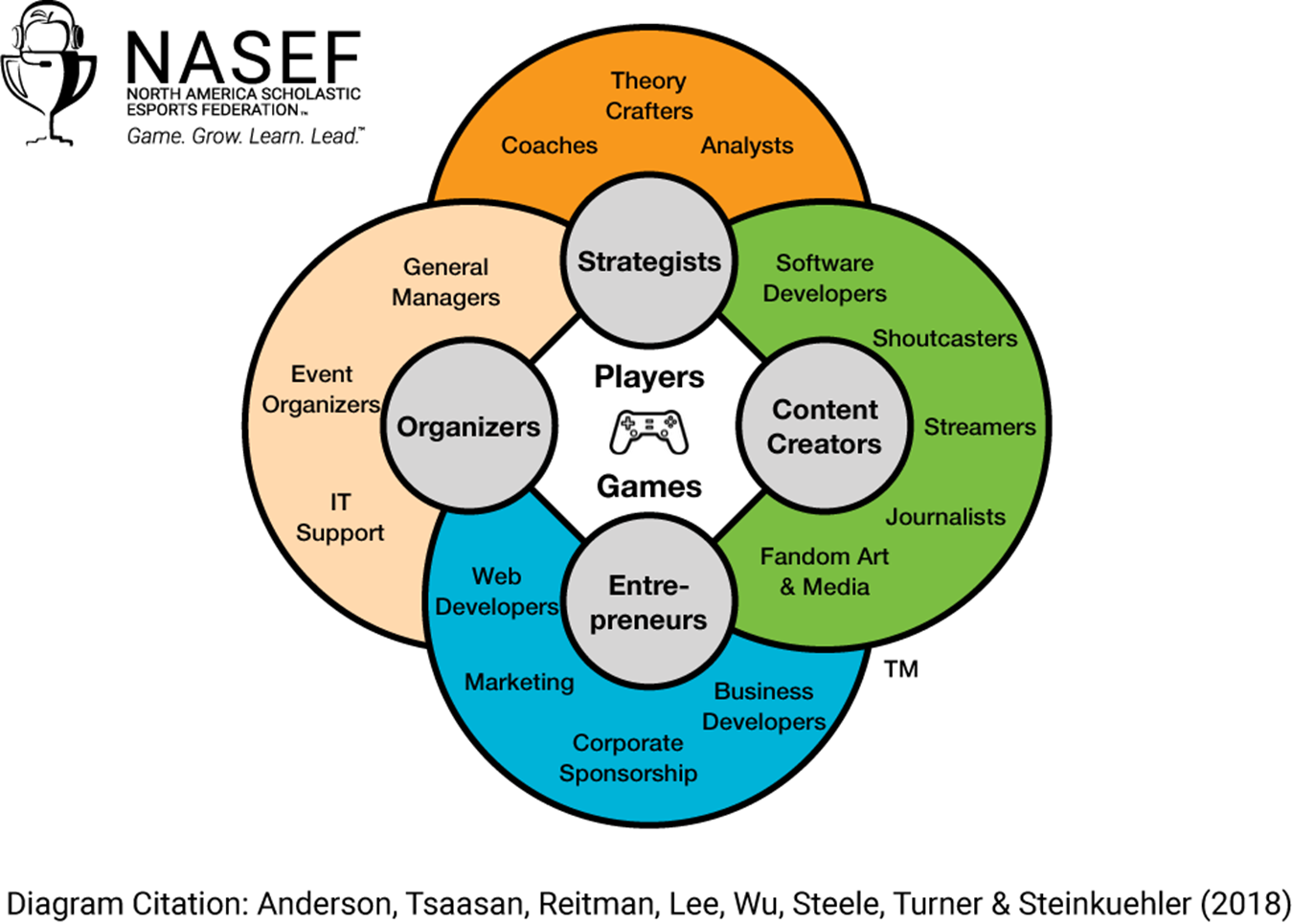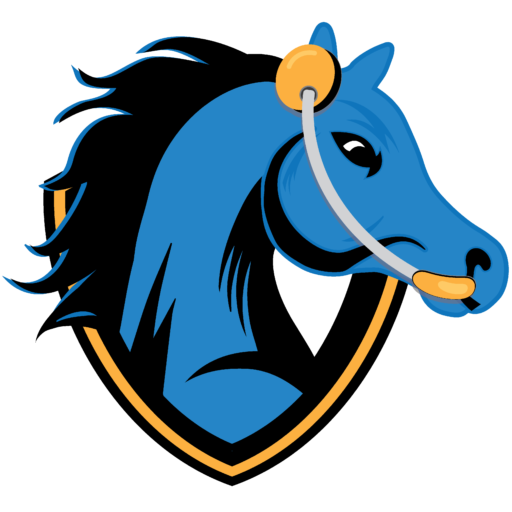Career Oriented Disciplines in Esports Curriculum (CODEC)
[vc_row][vc_column][vc_column_text]
A Guide to Implementing Hands-On Career and Technical Education Experiences into a Scholastic Esports Program
[/vc_column_text][/vc_column][/vc_row][vc_row][vc_column][vc_empty_space][vc_column_text]
In June of 2020, the New Jersey Department of Education updated the New Jersey Career and Technical Education (CTE) standards to the new New Jersey Student Learning Standards (NJSLS) – Career Readiness, Life Literacies, and Key Skills.
Their introduction to the new standards states: Rapid advancements in technology and subsequent changes in the economy have created opportunities for individuals to compete and connect on a global scale. In this increasingly diverse and complex world, the successful entrepreneur or employee must not only possess the requisite education for specific industry pathways but also employability skills necessary to collaborate with others and manage resources effectively in order to establish and maintain stability and independence.
They couldn’t be more right.
If we are going to be serious about STEM, Career & Technical Education, and other career readiness and life literacy skills, we need to be serious about esports. Esports is arguably the fastest growing industry in the world and part of the global video game industry which Grand View Research says will be worth almost $6 billion in 2027, which is more than the movie industry, music industry, and North American sports combined.
The video game industry at large, and esports specifically, best represents the type of world for which we are preparing our students for: a complex, global market where the requisite education and polished skill set are necessary to compete. Many of the jobs we are preparing our students for will be in and around this global esports ecosystem, especially in STEM fields. In fact, with all the opportunities at the collegiate level in and around esports, not having an esports program for students is becoming a clear equity issue. Nearly 200 colleges and universities currently have an esports program. With more than $16 million dollars in scholarships available, we need to position our students to take advantage of these growing opportunities in collegiate esports, so then can in turn be ready to enter this lucrative industry.[/vc_column_text][vc_empty_space][vc_column_text]
Creating the Team Behind the Team
The purpose of CODEC is to help schools and community organizations who have an esports team use it as a platform to integrate a hands-on CTE experience for students. What makes this curriculum unique is that students will perform the jobs on their scholastic esports team in the same capacity that a professional working for an esports team would. CODEC will help esports clubs build the team behind the team in the key areas seen in the North American Scholastic Esports Federation (NASEF) graphic below.
Building on the work of NASEF, we have taken the four major esports disciplines – strategists, organizers, content creators, and entrprenuers – and created, refined, or expanded more than a dozen vital, NJSLS aligned jobs for students to do on their Garden State Esports team:

CODEC Curriculum Design:
- Discipline 1: Content Creators
- Journalists
- Shoutcasters
- Videographers
- Graphic Designers
- Discipline 2: Entrepreneurs
- Business Developer
- Marketing
- Web Developer
- Accounting & Logistics
- Discipline 3: Strategists
- Coach
- Theory Crafter
- Statistician
- Analysts
- Discipline 4: Organizers
- Community Manager
- IT Technician
- Event Organizer
- Stream Team
[/vc_column_text][vc_empty_space][/vc_column][/vc_row][vc_row][vc_column][vc_empty_space][vc_column_text]
Active Structure, Always Updated
In our experience, when kids come to esports practice they are excited and full of energy. The last thing students want to do is sit down and listen to long lectures and presentations. They want to play, socialize, and move.
To that end, esports coaches and advisors should make every effort to use this curriculum as part of an active, hands-on CTE experience. Students should fill the roles for their team in the most authentic way possible – by actually doing the job for the team.
You can build your team behind the team in a variety of ways. You can assign the jobs by interest. You can rotate students through the different jobs. You can have students apply for the job using a resume and interview. It is up to you. This curriculum is meant to provide

esports advisors, coaches, and participants six things:
- What jobs students can do in your esports program
- What the responsibilities are for those jobs
- Brief, self-directed lessons on how to do the job
- Activities and example tasks for students to complete
- Links to useful resources to help students learn more about their job or get their job done
- How the job aligns to NJSLS Standards and resources to learn more about how they can make a career out of the job
This is a living document being update by the Garden State Esports community as we continue to use and refine this curriculum in own clubs. We will be supporting our CODEC curriculum with our industry-based challenges and partnerships. Learn more about CODEC Contests to get your kids in the game!
Remember: Everyone is at a different place on their esports journey. Having all of these jobs as part of your esports club would be wonderful, but it’s okay if you don’t. It takes time to build the team behind the team. Start where you can, let students follow their passion, and know the Garden State Esports team is here to help! GLHF!
Get Started With CODEC!
From New Jersey and ready to compete? Get started with CODEC by joining Garden State Eports today! Once you join, you’ll find CODEC under the resources tab of your GSE Portal!
Not from New Jersey or want to take CODEC to the next level?
CODEC can be enhanced with informational workshops for parents/guardians and school personnel to detail their role in supporting esports athletes. During these workshops parents/guardians learn about the history of esports, the current state of esports, and training and resources to assist in the support for their children. School personnel receive the same information as well as education on management of an esports team and how to administer the curriculum successfully. Let us know if you’d be interested in an CODEC workshop for your stakeholders![/vc_column_text][vc_empty_space][/vc_column][/vc_row]
